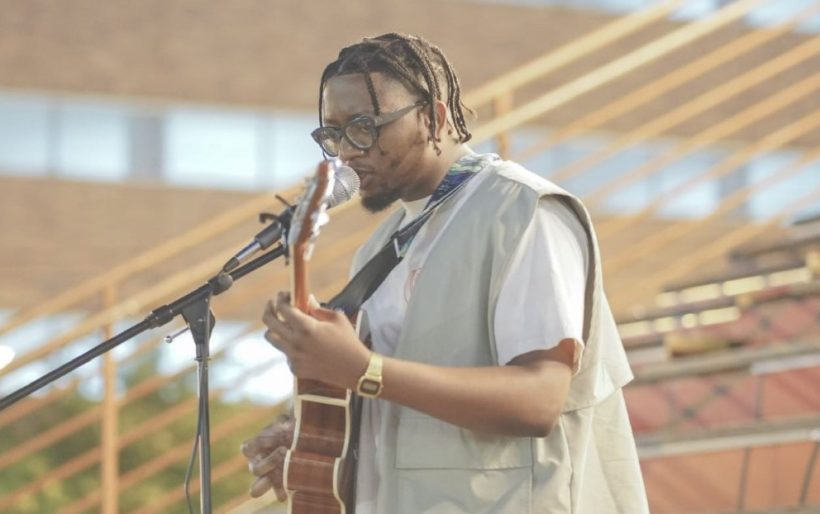It’s been four years since WXPN discovered who Balmour was. Back then, like most of his peers, you could easily catch the Yeadon singer performing at different open mics and possibly rocking out with his Emotae bandmates. It was also the moment he released his debut project Unplugged, a six-track EP that showed he and his younger brother Dan Goode had promising skills as songwriters. Then 2020 happened, and like most local artists, the uncertainty of knowing if they would be able to perform live again put a temporary hold on Balmour musically. That is until “Align” dropped, which would eventually become the first single off his sophomore project Double HP.
Balmour wanted to show who he was an artist on his own, without completely relying on the assistance of his brother’s production and writing. For Balmour, Double HP was a way to show his growth over soulful hip-hop beats that he found on YouTube. In 2020 he tested the waters with “Align” to see if he had something that would catch Philly’s ear. Safe to say it worked: many folks enjoyed Balmour’s new tune, including local Philly hip hop veteran Chill Moody, who was someone he grew up listening to in high school.
The other part of Double HP that showed Balmour’s growth was his willingness to collaborate with his peers, something that wasn’t done on his debut. With the assistance of acts such as Hunny, Friendzone Freddy, TwizzMatic, Shawn Smith, Chill Moody, Ugly Stephen, and even his own daughter, Balmour was able to put a cohesive album about how love is an unwinnable game due to its characters being hurt people who hurt people — but hopefully, who learn lessons along the way.
Two months after its release in April, I was able to sit down with Balmour and talk about a variety of topics such as his grow over the past four years, collaborating with his peers, and the lessons of love he would give his seven-year-old daughter, who also happened to make an appearance on the album. Listen to our interview in full and read highlights from the conversation below.
